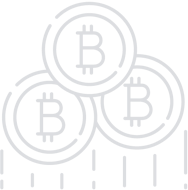가능한 고유 토큰의 경우 거의 무한 사용합니다. 우리는 이미 우리가 생각하고 작업 한 것을 더 구현되는 몇 가지 있습니다. 우리의 플랫폼은 모두에게 열려 있고 우리가 멀리 모든 blockchain 관련된 복잡성을 추상화 특히 이후, 혁신적인 아이디어는 우리의 플랫폼 위에 구현 될 것으로 예상 :하지만 더 중요한 것은, 우리가 t 가장 흥미로운에 대해 생각 바랬다 - 사람을이야.
STO/ICO기본정보
Claim this listing and publish updates.
기본정보
| 플랫폼 | Ethereum |
|---|---|
| 타입 | ERC20 |
| 참가가능화폐 | ETH |
| 유통량/발행량 | 65% |
| KYC | 불분명 |
| 제한 구역 | 불분명 |
| 웹사이트 | 홈페이지 |
| 백서 | 다운로드 |
개요
Open Collectors Network is the first decentralized platform for one-of-a-kind tokens, where everyone can seamlessly own, create, customize, interact with and trade individual tokens, on an open market, based on existing standard specifications.
Non-fungible vs fungible
Best way to explain how we understand this concept, and how it applies to our project, is by example. Imagine you printed 1000 flyers and are handing them out on the street. You don't care which flyer you hand out from the stack, because they are all identical: same size, same content, same purpose etc. This collection of flyers is said to be fungible and it's equivalent to current crypto currencies: if you send someone 1 coin, it doesn't matter which one from your wallet it is, any one coin will do.
But let's consider now, another collection: paintings by famous artists. Already, we can tell a difference: though all of them are paintings, if you wanted to buy one, you wouldn't just pick randomly. You like some more than others, some are more expensive and so on. They're unique (nonfungible), as they are all one-of-a-kind and it does matter "which" one it is.
Use Cases
Public
Individuals or groups can tokenize unique things of value to them, for personal use.
Virtual object marketplace for content creators:
The ability to buy digital assets with the intent to use them within a game or within the development of a game is possible through leveraging the ERC721 standard. This means the marketplace offers the tools for game developers to sell their creations or use those creations for further game development.
Digital media and rights marketplace:
It is worth noting that any digital media could be represented here. This could be a graphic, image, music, book, or anything else that one may want. For example, any artist, writer, musician would be able to sell their asset, as long as it was digital to anyone who wanted to do purchase the asset. Going further, digital rights relating to the ownership of the digital media can be bought and sold via the marketplace. The latter has the benefit of circumventing digital rights auction houses and significantly reducing cost of transacting and the fees related therein. Small creations, like a brand-name, or a logo can be directly held on-chain, whereas larger ones can be stored anywhere on the cloud, and only a hash of their value stored on the ledger. This brings the best of both worlds: cheap/fast storage and full accountability.
Gaming platform:
Certain types of games, like Magic: The Gathering© or in-game collectibles like a Dragon Lore AWP skin in Counter-Strike©, can be held on the public ledger, increasing accountability and transparency for the owning company. It also makes it trivial to attach & value (virtual currency) to any item.
Business sector:
Any freelancer or business can easily tokenize their personlized products (like a car, an article or hand-crafted items).
Auction houses:
Maintaining their inventory on the public ledger to increase trust among its client base.
Discounts:
Partnerships with companies which can tokenize their products; let's take for example a user which lives and breathes Apple products; he will create/buy different Apple unique tokens, at which point he, or even we, can approach the company and obtain discounts for him as a reward.
Embedded:
Features like 'Facebook like button' that can be easily put up in place using only a script tag on your website.
User identity:
Our platform aims to partner with a KYC solution, where after a user has his identity verified, a unique token for him is created on the blockchain. Whenever the user needs to verify his identity with another web site, he can use Metamask to sign a transaction verifying he is the owner of the token with all his information and the web site can double-check using our API. The same can apply for the more ordinary use case of logging into a website and it would work in just the same way as logging in with Facebook or Google, except it would be decentralized and you would own your credentials, not a 3rd party company.
BlockchainCollection:
One of the most basic and common patterns in coding in general is using a collection of objects with different attributes. Standard ones include array, list, dictionary, hashmap and there are many open source libraries which provide specialized collections (think C++ Boost, .Net C5 etc). Our platform will provide such an open-source library with collections that store objects on the public ledger, bringing with it all the benefits of decentralization while abstracting away all blockchain complexity. All that would be needed is just a wallet capable of signing transactions.
